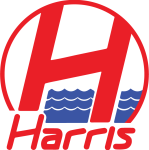Copepods, tiny crustaceans typically one to two millimeters long, play a crucial role in the health and balance of aquatic ecosystems worldwide. In New York’s water system, copepods significantly impact water quality and food webs. Copepods do not harm our health; their presence provides some benefits. Learn the role of copepods in New York’s water system.
They Indicate Water Quality
Copepods, or living crustacean zooplankton, are bioindicators that reflect aquatic ecosystems’ health. They respond to changes in water conditions, including temperature, salinity, and nutrients.
Copepods can provide insight into the ecological status of lakes, rivers, and estuaries. Monitoring copepod populations and diversity can help researchers and environmental agencies assess changes in water quality and implement remedial strategies.
They Are Key Members of Food Webs
Zooplankton like copepods are critical in aquatic food webs. They are primary consumers that feed on phytoplankton and bacteria. They link phytoplankton, the primary producers at the base of many aquatic food webs, with higher trophic levels. Zooplankton also transfer energy and nutrients to larger organisms, such as fish and birds.
Eating copepods helps fish grow and develop. Many commercially important fish species rely on copepods as a food source during their early life stages because they are highly nutritious and easy to digest.
Some Species Eat Mosquito Larvae
While most copepods primarily eat phytoplankton, some species eat mosquito larvae. Some municipalities use copepods in standing-water habitats to control the mosquito population.
They Minimize Harmful Algal Blooms
Another important role of copepods in New York’s water system is minimizing harmful algal blooms. Algal blooms are colonies of algae, a simple plant in freshwater and saltwater. Uncontrolled algae growth can become toxic to people, sea life, and birds.
The overgrowth of nontoxic algae can also harm the environment. An algal bloom depletes oxygen levels in waterways, causing hypoxia and killing sea life and plants. Copepods eat some types of algae, keeping water clean and safe.
Copepods indicate water quality, transfer energy through aquatic food webs, and minimize harmful algal blooms. Recognizing the significance of copepods in New York is important for effective management and conservation of waterways.
Protect your water lines at home with services from Harris Water Main and Sewer Contractors. Our water service contractors can install a new line or replace faulty pipes. Call us today for efficient, professional service.




















